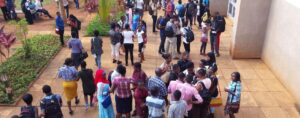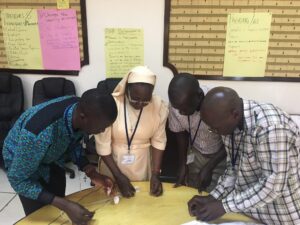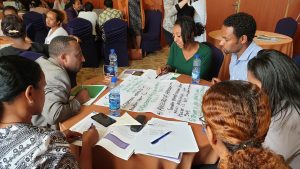Re-imagining higher education in Sierra Leone
‘The worst of times and the best of opportunities’
This piece was previously published on Jon Harle’s Medium blog site, republished here with his permission.
We hear many stories about the decline of African universities so it was great to hear a story of regeneration and renewal last Friday.
And it was particularly inspiring that this story came from a county better known in recent years for crisis and tragedy — Sierra Leone.
Miriam Conteh-Morgan, from the University of Sierra Leone’s Institute of Public Administration and Management spoke to the African Studies Association of the UK conference last Friday. It was unfortunate that more people didn’t hear her presentation live, so hopefully this goes some way to spreading that story further.
There’s no doubt that the university — and the country’s higher education system — faces many challenges. There are crowded classrooms, dilapidated buildings, too few qualified staff, and insufficient IT and library facilities. But there is also a great energy.
Pushing forward
Miriam’s presentation was ostensibly about the development of an institutional repository — an online platform to collect and make available research papers and teaching materials within the university and beyond. But at its heart this was a story of ambition and drive to improve the quality of the research and learning environment in the university, and of responding to a grave crisis by pushing even harder to advance the university’s mission.
As Ebola gripped the country, there were restrictions on movement and of large gatherings of people. University campuses were closed, and education interrupted for thousands of young people.
A few months prior to the Ebola outbreak, INASP had begun a project with USL, and with Njala University. The aim was to improve access to essential research and teaching material— online journals and books — coupled with training for librarians and academics, and from this foundation to support academics to publish more of their own work (see here for a review of the project as of April 2016).
Miriam and her colleagues had an ambition to transform the university environment through access to digital information and tools —including an institutional repository. But it was a long term goal. USL didn’t even have an up-to-date website, and certainly no way of hosting a collection of digital materials.
How do you get to digital with no money?
The Ebola shutdown created a new impetus. The university was forced to rethink its teaching model. But how do you ‘get to digital with no money?’ was the question. As Miriam’s presentation title suggested, the ‘worst of times’ created ‘the best of opportunities’. Faculty members were mobilized, IT staff engaged. Such is the VC’s energy for moving things along that he’s earnt the nickname ‘okada’ — after Sierra Leone’s motocycle taxis — and his commitment to the project has helped unlock change and engage others.
A university-wide email system was set up so all staff and students had an account. INASP was able to provide an additional small grant which enabled a server to be purchased, so that materials could be hosted locally. But of course only students with IT access at home would benefit — so the university partnered with NGOs to distribute CDs. With many challenges, and lacking the necessary infrastructure, there was a limit to what the university could do.
But post-Ebola, it was clear that the repository ‘had to be done’, and it was backed by senior staff. Since then, a team led by USL and Njala colleagues have been working with others to lay the foundations for a Sierra Leone Research and Education Network — a national, broadband network and associated IT services which will underpin academic and research work in the country, and help to connect Sierra Leoneans within and outside of the country.
Re-imagining
It’s still early days — there’s a long way to go before the University of Sierra Leone (and other institutions) will be able to offer the blended approach to teaching that it envisages, combining digital access to study materials with classroom teaching, and assisting faculty to communicate their own work online — and in turn, creating greater impetus for research. But what’s notable is that a team of energetic and inspired people not only came together to drive change, but in doing so they have begun to re-imagine how Sierra Leone can offer opportunity to its young people, and strengthen its research base to meet critical local needs.
Fourah Bay College — one of the University’s constituent colleges — was once famed as the Athens of Africa. As Miriam remarked, this isn’t just about trying to reclaim past glories, but about building for a new present, and imagining a new future. It’s this that offers the challenge to many of the tales of decline that we’re used to hearing. It’s certainly not the only example of that — but it’s a particularly striking one. At INASP we look forward to continuing our work with our colleagues in Sierra Leone.

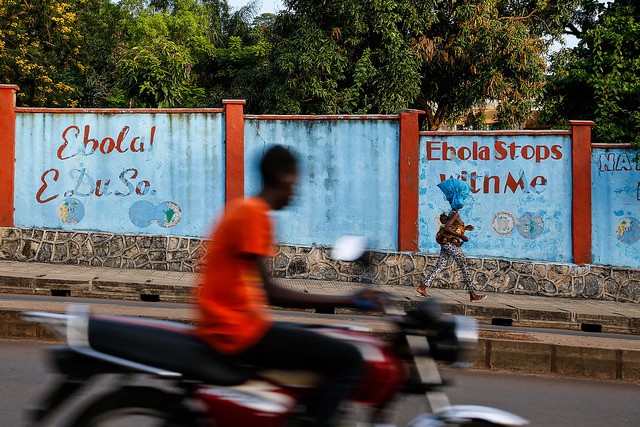
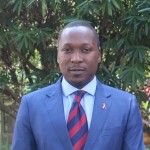 Previous Post
Previous Post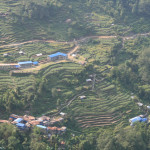 Next Post
Next Post